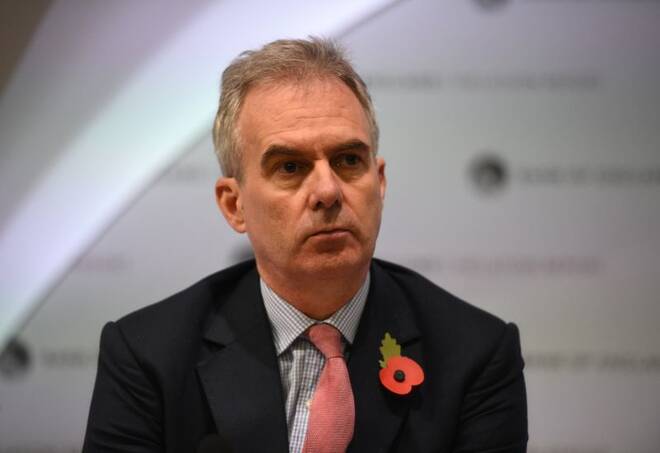Advertisement
Advertisement
BoE’s Broadbent sees inflation above 5%, price pressure from jobs market
By:
LONDON (Reuters) - Bank of England Deputy Governor Ben Broadbent said on Monday that inflation in Britain might "comfortably exceed" 5% in April and the country's tight labour market was likely to be a more persistent source of inflation.
By David Milliken and William Schomberg
LONDON (Reuters) -Bank of England Deputy Governor Ben Broadbent said on Monday that inflation in Britain might “comfortably exceed” 5% in April and that the country’s tight labour market risked becoming a more persistent source of inflation.
The BoE, which is trying to steer the economy through its recovery from a pandemic slump, said last month that inflation would hit about 5% in the second quarter of 2022 before falling.
Speaking to Leeds University Business School, Broadbent suggested that forecast would probably have to be raised further above the central bank’s 2% target.
“The aggregate rate of inflation is likely to rise further over the next few months and the chances are that it will comfortably exceed 5% when the Ofgem (regulator) cap on retail energy prices is next adjusted in April,” Broadbent said.
Asked about the Omicron variant of COVID-19 and how it would affect his vote on interest rates next week, Broadbent said he had not decided how he would vote, and that his decision would not be driven by a single factor.
There were reasons to think the recent jump in inflation for goods, which has been aggravated by a global supply chain squeeze, was likely to fade – and in some cases, reverse – before a BoE rate rise would have time to have an impact.
“It’s more likely than not – looking a couple of years ahead as we should – that these pressures on traded goods prices are more likely to subside than intensify,” Broadbent said.
Although unemployment is higher than before the pandemic, the jobs market could still prove a source of inflation, especially as the end of the furlough programme in September did not appear to have made hiring easier for employers.
Broadbent said it was unclear if record job vacancies reflected “sand in the wheels” of the economy as employers ramped up staffing levels, or if there was a longer-term mismatch in skills that would push up inflation.
He said he did not believe the coronavirus pandemic would lead to a lasting drop in labour force participation, as falls in rates so far had been similar to other downturns.
Sterling edged up and British government prices fell slightly after the comments by Broadbent.
He was one of the seven members of the BoE’s nine-strong Monetary Policy Committee who voted to keep interest rates on hold last month – a decision that shocked financial markets which had been betting on a hike.
Investors are now pricing in a 50% chance of the BoE raising rates from 0.1% to 0.25% on Dec. 16 because of the recent emergence of the Omicron variant.
On Friday, Michael Saunders, one of the two MPC members who voted for a rate hike last month, said there might be a case for waiting for more information about Omicron’s impact before pressing ahead with rate hikes.
Broadbent used his speech on Monday to stress how moves such as a change to interest rates could take two years to have an effect on the economy.
“What we can do – and what is the best possible approach – is to think at every meeting about the level of interest rates that will maximise our chances, a couple of years from now, of hitting the inflation target exactly,” he said.
(Reporting by David MillikenWriting by William SchombergEditing by Catherine Evans)
About the Author
Reuterscontributor
Reuters, the news and media division of Thomson Reuters, is the world’s largest international multimedia news provider reaching more than one billion people every day. Reuters provides trusted business, financial, national, and international news to professionals via Thomson Reuters desktops, the world's media organizations, and directly to consumers at Reuters.com and via Reuters TV. Learn more about Thomson Reuters products:
Advertisement
